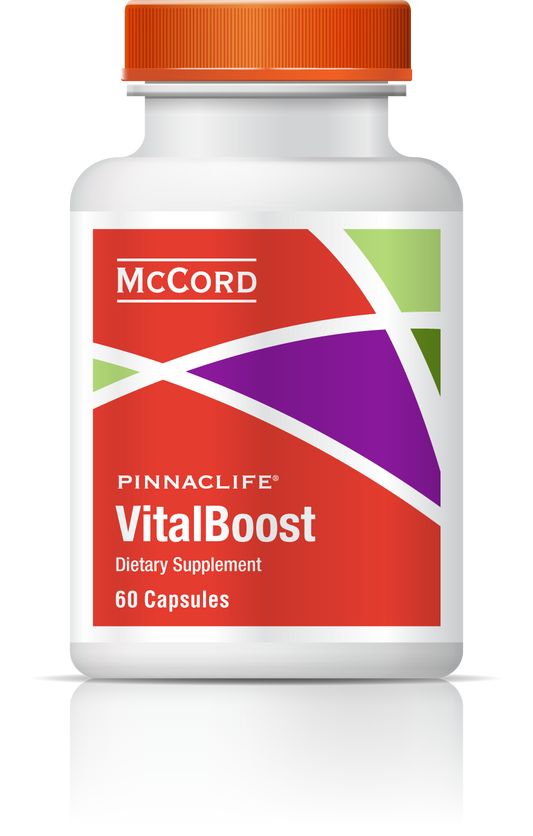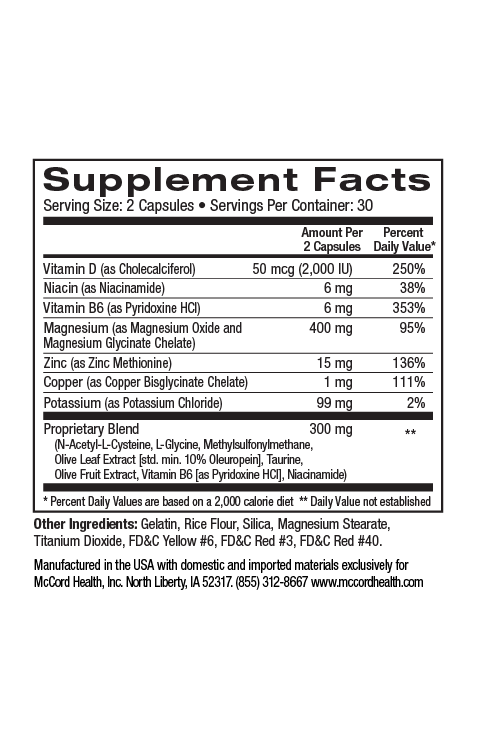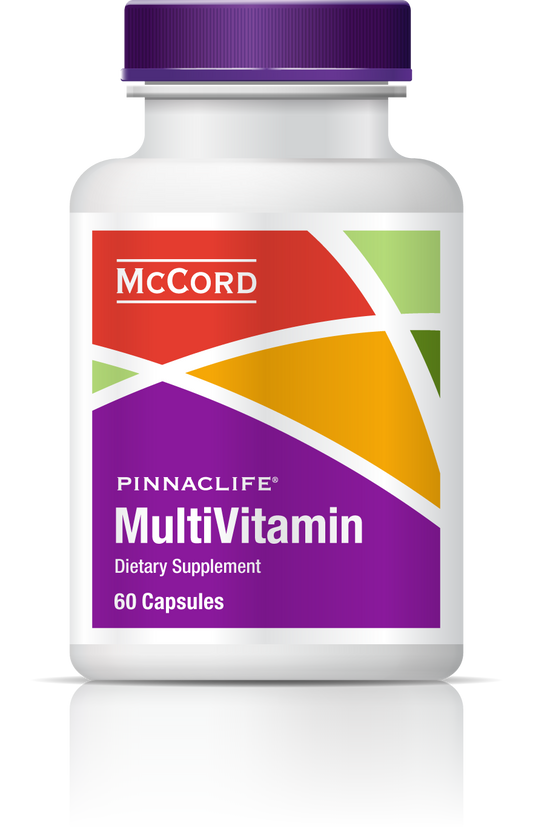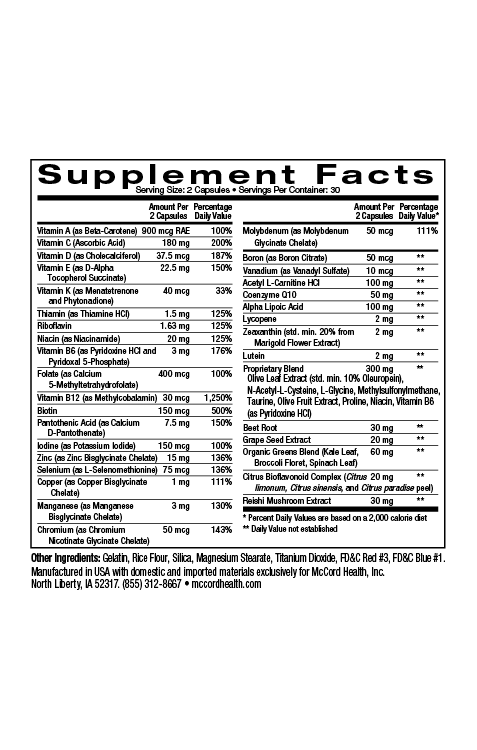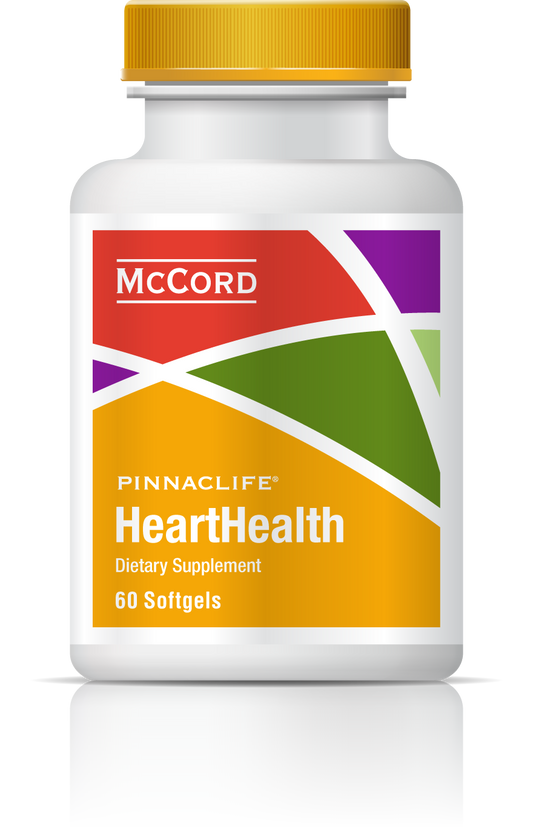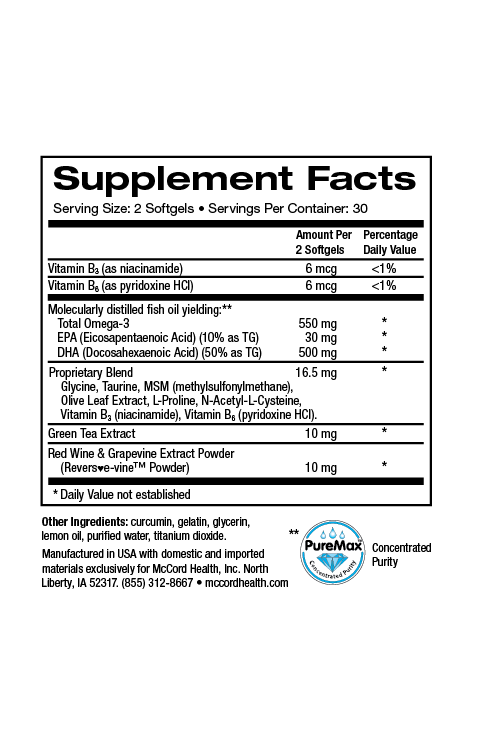Melatonin has many amazing properties, including regulating the circadian rhythm that is important for normal sleep patterns. Disruption of circadian control can result in many health problems, including metabolic dysfunction and cognitive impairment. Melatonin is produced naturally at night, but is inhibited by light, certain medical conditions, and aging. Many Americans report having insomnia that can result in daytime sleepiness and an increased risk of inflammatory diseases, as well as traffic accidents and hospitalization. Pinnaclife® SleepHealth with Proprietary Blendincludes melatonin and magnesium to help regulate the circadian rhythm for natural sleep, as well as decrease inflammation associated with oxidative stress and inflammatory diseases including cardiovascular disease. In addition, important ingredients in Proprietary Blend, including olive polyphenols decrease oxidative stress and inflammation to increase health and natural sleep.
- Melatonin helps regulate the circadian rhythm that is important for proper sleeping
- Sleep disruption caused by circadian misalignment can result in inflammation and health problems including cardiovascular abnormalities
- Melatonin is produced naturally at night, but artificial lighting can inhibit its production and decreased amounts of melatonin production are found with aging
- Almost one-third of Americans have insomnia that contributes to the risk of developing inflammatory diseases including neurodegenerative diseases
- Pinnaclife® SleepHealth with Proprietary Blend includes melatonin and magnesium to help improve sleep and decrease inflammation
- Proprietary Blend also includes many important ingredients like the potent olive polyphenols hydroxytyrosol and oleuropein that help decrease inflammation as well as oxidative stress
Melatonin is a hormone that is secreted from the pineal gland, located near the center of the brain. Interestingly, melatonin can also be found in the body in different areas outside the pineal gland, including in skin and the gastrointestinal tract. In fact, surprisingly, at least 400 times more melatonin is found in the gastrointestinal than in the pineal gland1. This may be due to the fact that cells in the gastrointestinal tract are constantly exposed to microbes and microbial components, which can cause immune responses like inflammation that melatonin can help control due to its immune regulating activity2.
In addition, melatonin helps regulate the circadian rhythm that is important for proper sleeping1. Various cells in the body have a time-sensing mechanism (or clock) called a circadian oscillator that is coordinated by a central clock located in the brain called the suprachiasmatic nuclei. In fact, almost all biological systems, most notably sleep and wake cycles, exhibit circadian rhythmicity. The normal period of the circadian oscillation is approximately 24 hours. Circadian rhythms persist in the absence of environmental time cues, but one of the biggest triggers for regulating this rhythm is natural light. However, with artificial light, an altered circadian rhythm can occur3,4.
Recent studies have demonstrated that circadian misalignment (when sleep is disrupted) induces inflammation5. Disruption of circadian control mechanisms or misalignment between internal circadian rhythms and the 24-hour outside environment may also result in other health issues, including metabolism dysfunction, cognitive impairment, and cardiovascular abnormalities6. Melatonin is produced naturally at night in a dark environment and is inhibited by light. In fact, melatonin secretion starts after sundown, peaks between 2 and 4 in the morning, then decreases1. However, this rhythm is compromised by aging and certain conditions including cardiovascular and neurodegenerative diseases7,8.
Melatonin found in Pinnaclife® SleepHealth can improve sleep and also help induce sleep in people with disrupted circadian rhythms such as those with chronic insomnia or jet lag8. Importantly, almost a third of all American adults have experienced insomnia9, and 35-40% report having excessive daytime sleepiness. Poor sleep is associated with an increased risk of hospitalization, traffic accidents and mortality10, and insomnia contributes to the risk of inflammatory diseases including depression, cardiovascular disease, diabetes, and neurodegenerative diseases like Alzheimer’s disease9.
Along with its ability to help regulate the circadian rhythm, as alluded to previously, the melatonin found in Pinnaclife® SleepHealth has powerful anti-inflammatory activity together with other important ingredients found in Proprietary Blend, including the olive polyphenols hydroxytyrosol and oleuropein, as well as MSM, NAC, and taurine that help decrease inflammation11-16. Inflammation is associated with oxidative stress that occurs when antioxidant defenses in the body are overwhelmed, which increases with aging. Fortunately, melatonin and the previously mentioned components of Proprietary Blend also have potent antioxidant activity.
Many people over the age of 50 have insomnia characterized by frequently disrupted sleep at night and early morning awakenings associated with attention or memory deficits and changes in mood17. Importantly, melatonin can easily cross the blood brain barrier and has neuroprotective properties. This is likely due at least in part, to its activity against oxidative stress and inflammation. Furthermore, increasing evidence suggests that melatonin has potentially beneficial properties in relation to neurological conditions such as Alzheimer’s and Parkinson’s disease, as well as amyotrophic lateral sclerosis (Lou Gehrig’s disease)1.
Besides insomnia, the amount of time people normally spend sleeping has steadily declined18. Unfortunately, many drugs used to treat sleeping problems or disorders either wear off quickly or have a hangover effect, and the side effects from these drugs can range from daytime sleepiness to chemical dependence10. Pinnaclife® SleepHealth with Proprietary Blend http://www.olivamine.com promotes sleep safely and without side effects. In fact, the naturally safe qualities of melatonin included in SleepHealth have led to its recommended use in helping to decrease sleep disorders19.
SleepHealth also includes magnesium, which has been shown to improve insomnia symptoms and depression that can be associated with poor sleep. In addition, magnesium has important anti-inflammatory activity and magnesium has been found to be beneficial in maintaining normal circadian rhythms20. Together with melatonin and magnesium, SleepHeath includes other impeccably sourced ingredients that have undergone rigorous scientific review to prove we renew, restore, and repair cells.
References
- Curr Neuropharmacol 2017; 15: 434-443.
- Endocrine 2005; 27(2): 189-200.
- Front Gen 2018; 9: 452: 1-8.
- Antioxid Redox Signal 2014; 20(18): 2982-2996.
- Brain Behav Immunol 2015; 47: 1-7.
- Neurol Clin 2012; 30(4): 1167-1191.
- Br J Pharmacol 2018; 175: 3190-3199.
- Int J Clin Pract 2007: 61(5): 835-845.
- Neuropsychopharmacol 2017; 42: 129-155.
- PLOS One 2013; 8(5): e63773, 1-6.
- Int J Mol Sci 2013; 14: 8638-8683.
- Planta Med 2011; 77: 1890-1897.
- Int J Mol Sci 2014; 15: 18508-18524.
- World J Diabetes 2014; 5: 679-710.
- Biol Pharm Bull 2009; 32: 651-656.
- Amino Acids 1996; 10: 59-71.
- J Endocrinol Metabol 2001; 86(10): 4727-4730.
- Nat Rev Immunol 2004; 4: 457-467.
- Front Neuroendocrinol 2019; 52: 22-28.
- Nutrients 2018; 10: 1354, 1-11.

